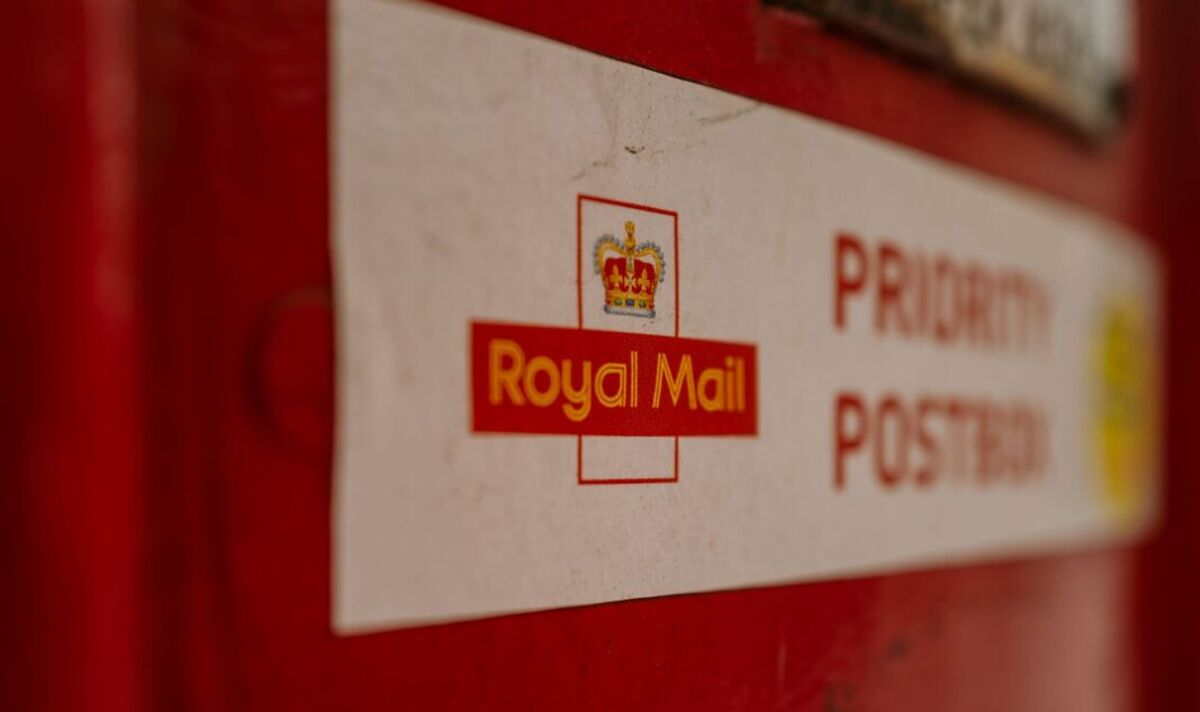
Delivery scams are on the rise again. There are a variety of text messages doing the rounds designed to harvest your personal and financial information.
Scams that arrive by SMS are also called ‘smishing’ attacks.
They often contain links – but you should never click on them.
Always remember, Royal Mail will never, ever ask you to pay anything via a text message.
READ MORE: Fraudsters posing as HMRC could empty your bank account instantly 
Watch out for scam text messages that state:
There’s a package that needs to be rescheduled and asks you to press on a ‘bit.ly’ link. The link takes you to a scam site asking for payment
An item is waiting to be collected by you
References a special event or festive list
A parcel is waiting for delivery. Please confirm the settlement of 2.99 (GBP) via a link.
It’s from deliverycentral.madebypi.com, but this may change. If you click on the link on the first screen you’ll see a message suggesting a package was found in transit and there is an outstanding delivery payment to make
There’s a £2.99 shipping fee to collect your package. Clicking on the link takes you to a fake site
A parcel is ready for collection. A link takes you to a fake website (royal-mail.cloud) where you’ll be asked to make a payment
Don’t miss…
An unexpected Amazon package could mean your personal data has been stolen [WARNING]
eBay sellers and buyers cautioned to watch out for 5 fraud tactics [SIGNS]
Fans urged to watch out for red flags when buying tickets online [ALERT]
Watch out for emails that state:
Your package could not be delivered on a certain date
Sender: Royal Mail Group Ltd, various email addresses may be used including [email protected]. The email informs you that your package could not be delivered due to no custom duty being paid
We attempted to deliver your package at (for example) 10:50, Sender: RoyalMail Delivery, various email addresses are used. The email informs you that you have missed a package delivery from HMRC Revenue & Customs and gives a link to reschedule the delivery
There has also been recent reporting of websites pretending to be Royal Mail and selling fake Royal Mail Stamps and Collectables. These websites may offer a discount, but once you’ve given your personal information, the criminals can use this for future scam targeting and the stamps and collectables either don’t exist or are fake.
We use your sign-up to provide content in ways you’ve consented to and to improve our understanding of you. This may include adverts from us and 3rd parties based on our understanding. You can unsubscribe at any time. More info
To reduce the risk of falling victim to a scam, Action Fraud suggests following the advice of the Take Five to Stop Fraud campaign:
Stop:
Taking a moment to stop and think before parting with your money or information could keep you safe
Challenge:
Could it be fake? It’s okay to reject, refuse or ignore any requests. Only criminals will try to rush or panic you.
Protect:
If you think you’ve been a victim of fraud, contact your bank immediately and report it to Action Fraud online at police.uk or by calling 0300 123 2040.
If you receive a suspicious email, text message, telephone call or discover a Royal Mail branded website which you think is fraudulent, please report it to [email protected].
For suspicious emails, forward the email to [email protected], do not click on any links or attachments and then delete it from your inbox.
For suspicious text messages, please send a screenshot of the message to [email protected].
Question: If I get an unwanted (unsolicited) package or duplicate of goods can I keep the packages?
If an item is addressed to you, there has been no previous contact with the company, and it arrives out of the blue, then you can keep it. But anything which arrives by mistake – either delivered to the wrong address, or a duplicate of some goods you have already received – has to go back. And it’s the right thing to do!
Don’t click on links or download attachments from unknown sources. This can lead to malware or phishing attacks.
Use strong and unique passwords for all your online accounts and enable two-factor authentication whenever possible.
Trust your instincts. If something seems too good to be true or feels suspicious, it probably is.
Remember: If you have received a text you think is a scam then you can forward to 7726 or take a screenshot and send it to [email protected]. If you are receiving lots of unwanted phone calls or text messages you can also consider removing your details from data brokers, ensuring that you use a right to object to processing of your data.
You can learn more about this on Rightly to stop the sharing of your data exposing you to scams. And you can take a free training course on how to fight against scams on www.friendsagainstscams.org.uk. The more we talk about scams the more we take away the shame.
SEARCH
CONNECT WITH US
TODAY’S PAPER
See today’s front and back pages, download the newspaper, order back issues and use the historic Daily Express newspaper archive.
EXPRESS.CO.UK

